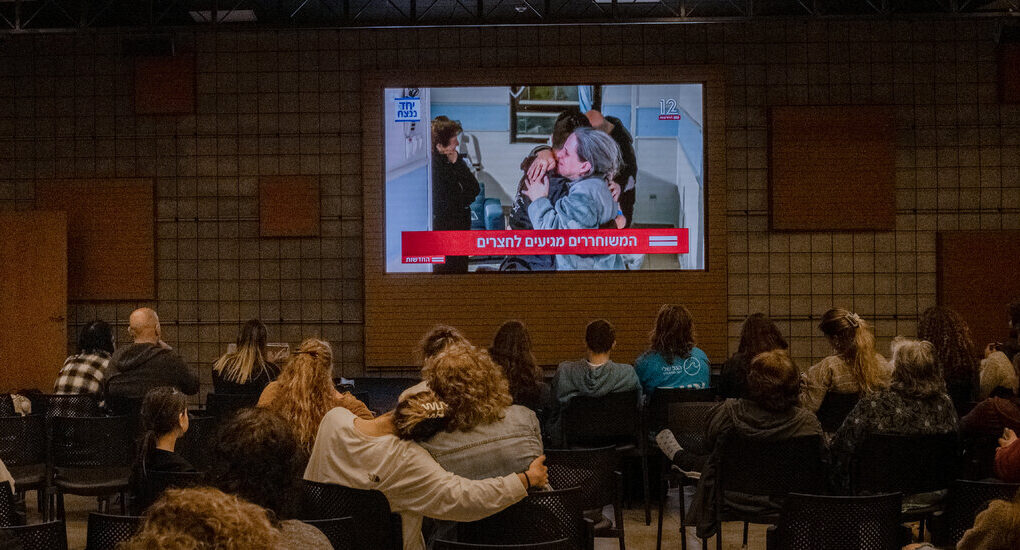Qatar says Israel and Hamas will extend the truce
Israel and Hamas agreed yesterday to extend their fragile truce for two more days, according to officials in Qatar who helped negotiate the initial cease-fire.
The deal could allow for additional aid to flow into Gaza and the release of more hostages, prisoners and detainees than initially expected. The extension comes as the four-day truce, set to expire today. Israeli officials signaled that a fourth exchange of hostages and prisoners, the final round of the initial agreement, would proceed.
Here’s the latest.
The head of the State Information Service in Egypt, which is also mediating the talks between Israel and Hamas, said yesterday that a two-day extension would include the daily release of 10 women and children being held hostage in Gaza in exchange for 30 Palestinian detainees being held in Israeli prisons.
The renewed agreement would also prolong a pause in the Israeli bombardment of the Gaza Strip that has killed at least 13,000 people and created a humanitarian disaster for its 2.2 million residents.
Exchanges thus far: Hamas has released 39 Israeli hostages and Israel has freed 117 Palestinian prisoners. Another 19 hostages in Gaza — 17 Thais, one Filipino and one Russian-Israeli dual citizen — have been released since Friday through separate negotiations.
Other developments:
Trapped underground with no end in sight
Forty-one Indian construction workers have been stuck underground since Nov. 12. The authorities are now trying to drill down vertically through a Himalayan mountain to rescue them. It could take several days, if it works at all.
Late last week, an effort to insert pipes which could be used to extract the men into the tunnel was stopped, after the auger being used to penetrate the rubble broke during the final stretch. The workers have food, water and oxygen, but colder weather would make the effort even more complicated.
“We feel a looming sense of doom,” said Jyotish Basumatary, whose brother, Sanjay Basumatary, is trapped inside. “But we are holding on tight. We cannot afford to give up hope.”
Background: The tunnel is part of a project intended to provide quicker access to four major Hindu shrines. But the plan has been criticized by environmentalists, including a committee appointed by the Supreme Court, who warned that the landscape, with its frequent landslides and flooding, has become increasingly fragile.
How a child’s mistake can ruin your digital life
Google has a zero-tolerance policy for child abuse content, but the scanning process can go awry and target innocent people as abusers.
After Jennifer Watkins’s 7-year-old son posted “a video of his bottom” to YouTube with a tablet linked to the family’s Google account, the video was flagged and she lost access to her photos, vital documents and email. Google said the video, even if it was a child’s oblivious act, still violated company policies.
The New York Times has documented other episodes in which parents’ digital lives were upended by naked photos and videos of their children that Google’s A.I. systems flagged and that human reviewers determined to be illicit. Some parents have been investigated by the police as a result.
THE LATEST NEWS
Around the World
A team of 15 rangers — 10 of whom are women — in Aceh Province in Indonesia are the first line of defense between their village forest and the squatters who want to clear the trees for timber or to farm the fertile soil. When the rangers find trespassers, it is the women who first engage and look to de-escalate the situation. They ask the intruders to sit and chat.
“We don’t go all alpha like the men, thus the situation never heightens,” said Rezeki Amalia, one of the rangers.
A new match for menopausal weight gain
About 70 percent of women gain up to 1.5 pounds per year during menopause, some estimates suggest. The extra weight affects women’s self-esteem and quality of life and can also increase the risk of diabetes, cardiovascular disease and other health issues. Some are turning to weight-loss drugs like Ozempic and Wegovy.
But weight loss typically leads to muscle loss. Experts worry that these relatively new medications — whose long-term effects are still being studied — may exacerbate the loss of muscle mass and bone density that is common among menopausal women, potentially putting them at greater risk for fractures, falls and osteoporosis.



